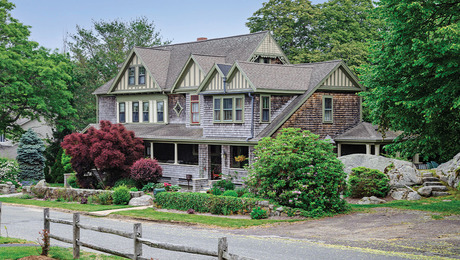*
Can somebody please recommend a truly mildew-proof tub and tile caulk? Everything I use starts to turn gray and ugly within months, including the products that advertise themselves as mildew-proof.
Discussion Forum
Discussion Forum
Up Next
Video Shorts
Featured Story

From plumbing failures to environmental near disasters, OHJ staffers dish on our worst and best moments.
Featured Video
SawStop's Portable Tablesaw is Bigger and Better Than BeforeHighlights
"I have learned so much thanks to the searchable articles on the FHB website. I can confidently say that I expect to be a life-long subscriber." - M.K.














Replies
*
I've had reasonably good luck with poly seam seal. I've thought about marine caulks because no sealent I've tried is completly mildew proof.
*Ditto on the polyseamseal! I ran a fingerfull in hastily several months ago because the "tub & tile caulk" was cracking and growing a fine crop. The poly stuff has held up perfectly, I'm letting it go to see what happens to it.What about silicone?
*I used a Hyrdroment supplied caulk after tiling a bath enclosure so that the tile/tub seam would match the grout color. Caulk was made by Bostik. No mildew -- none, nada. I don't know why this is, but there must be something about the Bostik caulk.
*Other then when using a colored caulk as mentioned by Steve, I use a butyl rubber made by Red Devil. It is approved by the USDA for use in meat packing houses and bakeries. Come in white, brown, and black. Never a problem with mildew, although it is a problem if you get the stuff on you.
*I have struggled with mildew proofing for a couple of years and would also like to know what caulk will actually not provide a base for it to grow. I don't believe there is is any. Bathroom fungi can be red, white, pink and black where I live.100% silicone -- and I mean 100% (read the label carefully), seems to last the longest without a fungus taking hold but I think this is because 100% silicone has the smoothest surface and therefore is the easiest to clean and is least suseptible to being damaged by abrasive cleansers. I haven't tried the butyl caulks but I will now. Once mildew sets into a wall, no manner of chemicals or abrasion will actually kill it since the spores are microscopic and can lie dormant for years at very hot and cold temperatures (and in completely dry locations) before rearing their ugly heads. If you don't get all the mildew out (ie; replace the drywall and dismantle all fixtures and scower them inside and out) before you caulk, the mildew will return. It will grow and spread across any surface that has sufficient humidity. Mildewcides will retard growth but not eliminate it. Mildew spores are everywhere looking for a place to plant themselves and start a colony."Tub and tile" caulks are generally not 100% silicone (read the labels) and are usually in soft shelled tubes, making tight and even applications impossible. its definitely worth buying the most expensive caulks for bath and kitchen areas; and use a gun, not the hand-squeeze type of tube. You will find an article or two in FHb on caulks.
*Rich - what, does it make you smell like meat, or baked goods? - jb
*
Can somebody please recommend a truly mildew-proof tub and tile caulk? Everything I use starts to turn gray and ugly within months, including the products that advertise themselves as mildew-proof.